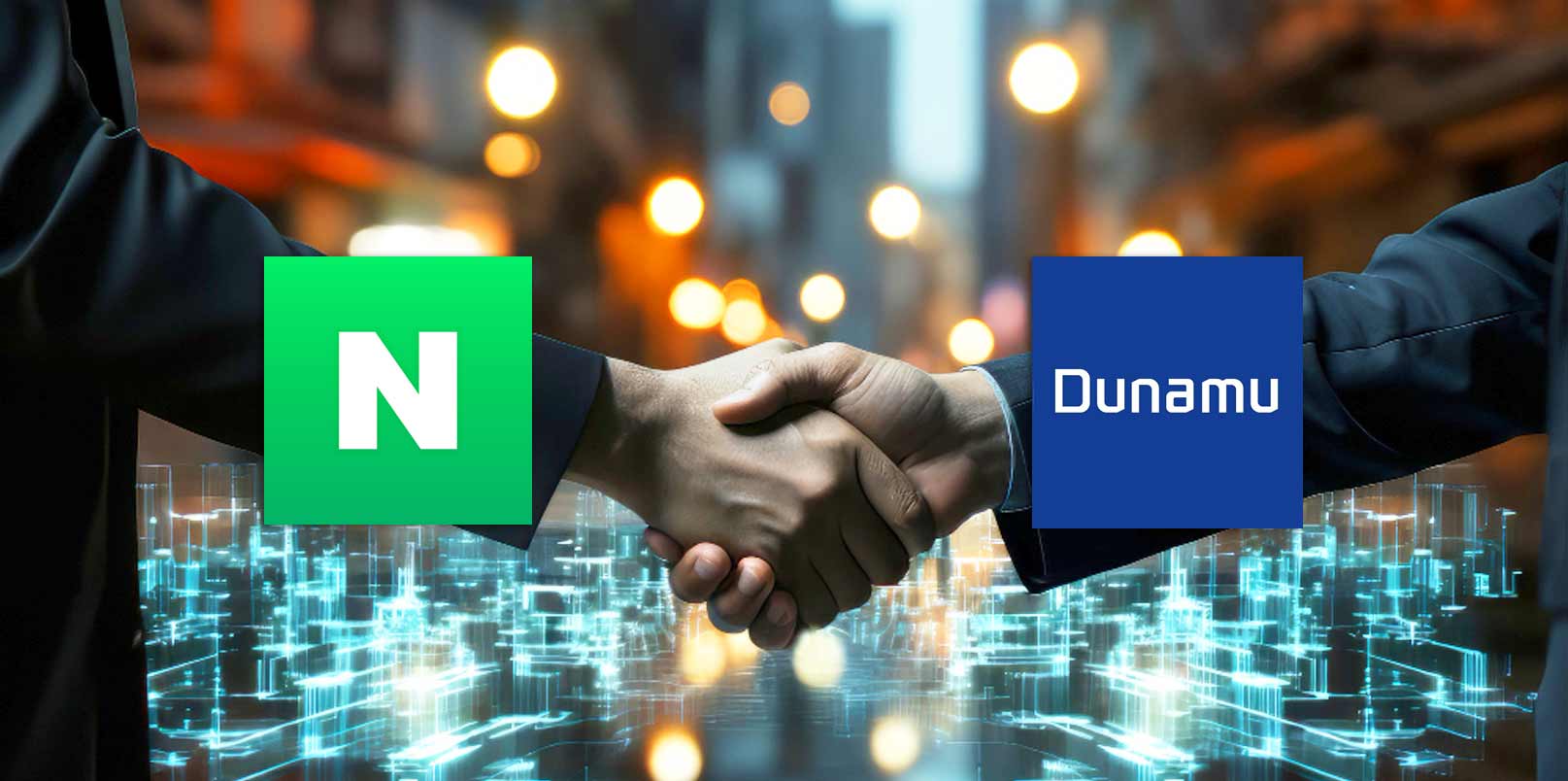Korea’s fintech sector is reaching a pivotal crossroads. The proposed merger between Naver and Dunamu could redefine how big tech and blockchain finance converge under regulatory oversight. As both companies prepare to test the limits of stablecoin adoption and cross-border digital finance, their next moves will reveal how far Korea’s fintech innovation can expand on the global stage.
Naver and Dunamu Explore Merger, Signaling Fintech Consolidation Shift
Korea’s fintech landscape is on the verge of a major structural shift as Naver and Dunamu explore a merger that could reshape the country’s digital finance and virtual asset ecosystem.
The potential partnership between Naver Financial, a subsidiary of Korea’s largest IT platform, and Dunamu, operator of the nation’s leading crypto exchange Upbit, marks a bold attempt to align big tech infrastructure with blockchain finance.
Industry sources suggest that the merger could take the form of a comprehensive stock exchange, with the most likely merger ratio estimated around 1:3 between Naver Financial and Dunamu.
If finalized, the merged entity’s combined annual revenue would exceed KRW 3.3 trillion (USD 2.4 billion), and its operating profit could reach KRW 1.2 trillion (USD 870 million)—a dramatic leap for Naver’s financial arm.
Why Naver and Dunamu Are a Strategic Fit
The logic behind the merger is straightforward but transformative.
By partnering with Dunamu, Naver will gain access to advanced blockchain and virtual asset capabilities that can expand its fintech portfolio beyond traditional payments and loans.
At the same time, joining a platform ecosystem of Naver’s scale offers Dunamu the brand exposure, technical resources, and cross-platform integration needed to accelerate its global stablecoin and digital finance strategy.
Analysts describe the two firms as “ideal partners” for the next phase of Korea’s fintech evolution—combining financial technology scale with crypto market infrastructure in time when the country is developing new policy frameworks around won-based stablecoins.
Hence, if the merger succeeds, Naver and Dunamu could dominate Korea’s stablecoin ecosystem, potentially establishing a benchmark for integrating regulated digital assets into mainstream financial services.
Ownership, Control, and Regulatory Hurdles
On the other hand, the Naver – Dunamu merger plan also financially raises complex governance questions.
Now, the valuations show that Naver Financial is at roughly KRW 4 trillion. Meanwhile, Dunamu is between KRW 12 trillion and KRW 16 trillion. It means that Naver’s stake would fall from 69% in Naver Financial to approximately between 13.8% to 17.5% in the merged company.
At the same time, Dunamu Chairman Song Chi-hyung would also likely become the largest shareholder, which means that Naver could lose majority control unless it purchases additional shares.
Market observers say Naver might pursue a KRW 2 trillion acquisition plan to raise its stake to around 30%, ensuring consolidated accounting control. And if executed, Naver’s consolidated annual operating profit could increase by over KRW 1.22 trillion—even without major business restructuring.
However, the merger’s success depends not only on financial alignment but also on shareholder and regulatory approval.
Shareholders representing at least one-third of total shares must attend the vote, and two-thirds of those present must approve.
And with several key financial investors (FIs) holding significant shares, including Kakao Investment, which owns 10.6% of Dunamu and competes directly with Naver in fintech and content, approval is far from guaranteed.
Regulatory Landscape: Stablecoins Meet Financial Supervision
Now, among other things, the largest variable in Naver – Dunamu merger plan will be the regulatory uncertainty.
Korea’s Financial Services Commission (FSC) and Financial Supervisory Service (FSS) are both cautious about the overlap between big tech platforms and virtual asset businesses, especially regarding consumer protection and financial intermediation laws.
Previously in 2021, Naver Financial was forced to suspend its loan and insurance recommendation services after regulators ruled the company was brokering financial products without authorization. The precedent has raised concerns over whether regulators will permit a structure where Naver effectively controls Dunamu, given that Dunamu operates a crypto exchange subject to ongoing scrutiny.
The potential merger would also coincide with policy experiments around Korean-won stablecoins, where financial regulators are seeking to balance innovation with systemic stability.
If the Naver–Dunamu partnership materializes, it would likely serve as a litmus test for integrating stablecoins into the mainstream banking and fintech system under Korea’s evolving virtual asset law.
Korea’s Fintech Globalization in Motion
Still, beyond Korea, this move holds symbolic importance for Asia’s fintech ecosystem. The Naver – Dunamu merger plans has actually signaled Korea’s intent to compete globally in digital asset innovation, bridging fintech infrastructure with regulated crypto frameworks.
At the same time, it also represents a rare chance for policymakers to observe how a major technology conglomerate collaborates with a blockchain-native company to build a compliant, scalable model for the next generation of financial services.
Therefore, if the merger moves forward, Naver and Dunamu could jointly pioneer cross-border stablecoin settlement systems, regional AI-driven digital finance models, and new approaches to crypto-based e-commerce.
And once again, such developments would enhance Korea’s positioning as a global hub for fintech-crypto innovation, especially in the Asia-Pacific region. And it also means that South Korea will potentially rival Singapore and Japan in the policy experimentation and ecosystem maturity.
Naver – Dunamu Merger Plans: A Defining Moment for Korea’s Fintech Future
Finally, the Naver–Dunamu merger proposal highlights a defining moment in Korea’s fintech evolution. It reflects how regulation, innovation, and globalization are colliding in real time as digital assets enter mainstream finance.
And the outcome will set a precedent for Korea’s startup and investment community. It’s either proving that big tech–crypto integration can coexist with regulatory oversight or exposing the limitations of such convergence under current law. Either way, the discussions surrounding this merger are shaping how Korea’s fintech industry will expand beyond national borders and into the next era of global digital finance.
– Stay Ahead in Korea’s Startup Scene –
Get real-time insights, funding updates, and policy shifts shaping Korea’s innovation ecosystem.
➡️ Follow KoreaTechDesk on LinkedIn, X (Twitter), Threads, Bluesky, Telegram, Facebook, and WhatsApp Channel.
